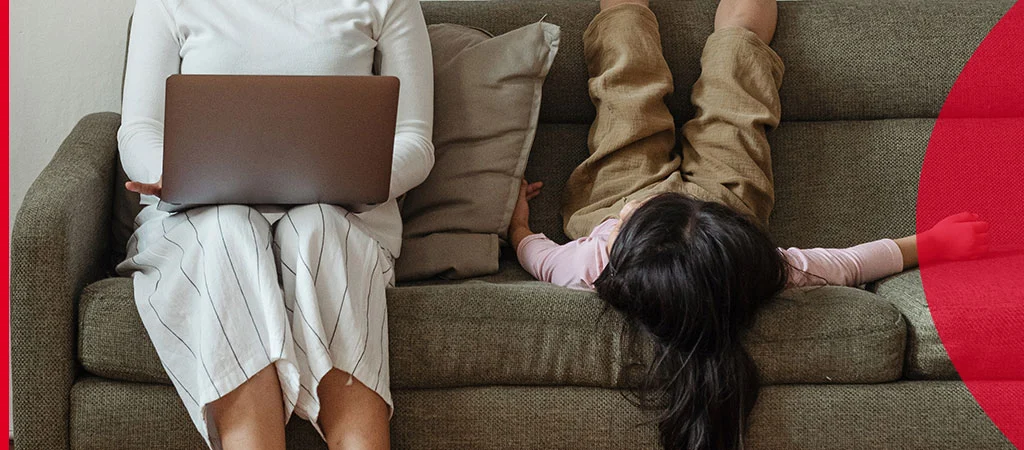Modern parenting has changed in our fast-paced, tech-driven environment. While it has improved parenting for parents and children, what does modern parenting lack nowadays? With so many distractions, presence, patience, and genuine connection appear to be slipping away. This essay will examine the essential elements missing from today’s parenting methods and how to bridge them to create a more fulfilling and meaningful parent-child relationship.

The changing landscape of parenting today
In today’s fast-paced environment, modern parenting has changed significantly. Despite modern life’s advances and comforts, conventional parenting seems absent. Quality time with kids is important. Finding undisturbed time to communicate with kids has become rarer as parents balance many duties and distractions like smartphones and social media.
Table of Contents
There are also fewer great parental role models in the digital age. In previous generations, parents taught their children wisdom, values, and discipline. However, the rapid spread of knowledge through media outlets exposes kids to conflicting messages and role models outside their home. Therefore, modern parenting may lack consistency and stability for good child development.
We must pause and think about these changing parenting relationships to effectively handle the difficulties. Only by modifying our techniques can we create a supportive atmosphere for our children where they feel heard, understood, and may develop emotionally and mentally in an ever-changing world.
Lack of quality time with children
Modern parents spend little time with kids. In our busy lives, parents often struggle to spend quality time with their children. Family bonding has suffered due to employment, extracurriculars, and technology. Children want significant emotional interactions.
This lack of quality time affects children’s self-esteem and sense of belonging. Children may feel ignored or unimportant when parents are often rushing. This can make them feel insecure and unconfident. Without regular face-to-face time with their parents, kids miss out on important communication and emotional connections.
Disconnects in values and beliefs between generations are another issue. Without quality time together, parents struggle to teach their kids morals and culture. Kids learn social norms and identities from their caregivers through observation and interaction. Modern parents’ lack of quality time may derail children’s healthy growth.
Modern parenting is fractured because parents don’t prioritize quality time with their kids.
Over-reliance on technology for entertainment
What’s missing from modern parenting? As we become more dependent on technology for entertainment, many households lack actual human interaction. Families typically spend time on smartphones, iPads, and video gaming consoles instead of talking. Technology can bring fun and education, but overuse can be harmful.
Overuse of technology affects children’s social skills. Instead of talking to their peers, kids may interact online or on social media. This lack of face-to-face engagement lowers communication and emotional intelligence. Screen time also discourages outdoor play and physical activity, which are vital to children’s health.
Parents should also evaluate how excessive screen usage affects their connection with their kids. Technology-dependent entertainment can distance parents from their children. Instead of bonding over shared hobbies like reading or board games, families often use screen time to separate each member.
To raise our children holistically, we must balance technology use with other leisure activities.
Decrease in outdoor play and physical activity
What’s missing from modern parenting? Children’s declining outdoor play and physical activity is a major issue. Technology and digital entertainment are making youngsters more sedentary, spending hours on screens instead of playing outside. This change greatly affects their physical, emotional, and developmental health.
Modern parents value academics and controlled activities over outdoor play. They believe that giving their children educational resources and enrichment programs will help them succeed. These aims are important, but they sacrifice essential physical activity for a child’s growth. Regular exercise improves cardiovascular health, muscle strength, social skills, resilience, creativity, and problem-solving.
Reducing outside play denies children these benefits and inhibits their connection to nature. Research shows that natural environments improve cognition and reduce stress. By restricting outdoor settings where kids can freely explore and engage, modern parents unintentionally stunt their growth.
Parents must appreciate the relevance of outdoor play and physical activity in holistic child development.
Failure to teach essential life skills
Modern parenting, despite its best intentions, often fails to impart life skills. With the growth of technology and fast satisfaction, many parents prioritize material items over education and skills. This strategy impairs growth and sets them up for adult failure.
Financial literacy is overlooked but essential. Parents today may avoid talking about money because they think it’s too complicated or unsuitable for kids. Thus, youngsters become adults who struggle with money and fall into debt or unsafe ventures. Parents may help their children make smart financial decisions by talking about budgeting, saving, investing, and money early on.
Emotional intelligence is another important life skill that is neglected. EQ is devalued in a society that values academic performance in math and science. Building good relationships and navigating adulthood require emotional intelligence. Teaching children empathy, self-awareness, effective communication, and conflict resolution early on can help them build lifelong interpersonal skills.
Finally, modern parenting often fails to teach financial literacy and emotional intelligence.
Pressure to conform to societal expectations
What’s missing from modern parenting? Society’s compulsion to conform is often overlooked. Parents feel compelled to raise their children according to societal conventions, regardless of their child’s specific requirements. This can be observed in parenting, from forcing children into extracurricular activities they may not enjoy or succeed in to subscribing to stringent academic standards at the expense of creativity and exploration.
Parents are bombarded with photos and stories of how other parents raise their children in this age of social media perfection and comparison. This makes them worry about slipping behind or not giving their child the best chance. Thus, parents feel driven to shape their children into what society considers successful rather than letting them explore their hobbies and abilities.
Every child has distinct strengths, interests, and learning styles. Modern parenting should nurture children’s individuality rather than try to conform them. Parents must trust their instincts and give themselves and their children some leeway in disobeying society. Instead of being stifled by society, we create an environment where our children can thrive.
Conclusion: what does modern parenting lack nowadays?
Many aspects of modern parenting are severe. Helicopter parenting involves constant surveillance and intervention. On the other hand, laissez-faire parenting leaves kids to their own devices without much supervision. Today’s parenting lacks balance.
Modern parenting often lacks a balance between involvement and independence. Parents may want to protect their kids from every crisis, but this can impair their resilience and problem-solving skills. A wholly hands-off attitude might also make youngsters feel unloved or unprepared for maturity.
Parents must achieve the right balance between support and supervision and growth and liberty. This balanced approach values independence and structure. By establishing this balance, parents can assist their children face life’s obstacles with confidence while providing direction. Modern parenting requires a balanced approach to raising well-rounded, resilient children in a world that often demands overprotection or extreme detachment.



Add Comment